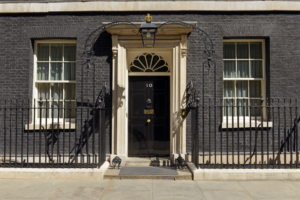 Kwasi Kwarteng announced a number of tax cuts in his first budget as Chancellor of the Exchequer, in a bid to drive economic growth against the backdrop of the cost of living crisis and looming recession. The so-called 'mini-budget' arrived just a day after the Bank of England confirmed its 7th consecutive base rate rise, which now stands at 2.25%, a 14 year high. We explain how the key decisions from today's Mini-Budget will impact your finances.
Kwasi Kwarteng announced a number of tax cuts in his first budget as Chancellor of the Exchequer, in a bid to drive economic growth against the backdrop of the cost of living crisis and looming recession. The so-called 'mini-budget' arrived just a day after the Bank of England confirmed its 7th consecutive base rate rise, which now stands at 2.25%, a 14 year high. We explain how the key decisions from today's Mini-Budget will impact your finances.
National Insurance - Cut from 6th November
Chancellor Kwasi Kwarteng announced a reversal of the recent 1.25 percentage point rise in National Insurance, effective from 6th November 2022. The 'health and social care levy' was introduced on the 6th April by former Chancellor Rishi Sunak to help fund increases in spending on health and social care.
What does the National Insurance cut mean for you?
Employees earning less than £12,570 a year will not be affected as National Insurance is only paid on earnings in excess of the tax-free personal allowance. The amount you will save over and above this amount will increase as you earn more. Our table below gives examples of how the cut to National Insurance will impact different earnings.
| Earnings | How much will the National Insurance tax cut save you (Effective from 6th November 2022) |
| Under £12,570 | £0 |
| £20,000 | £93 |
| £30,000 | £218 |
| £50,000 | £468 |
| £80,000 | £843 |
| £100,000 | £1,093 |
Income Tax - Basic rate cut to 19%
The basic rate of income tax will be reduced from 20% to 19% from April 2023, a year earlier than planned. Additionally, it was announced that the 45% additional rate of tax that applies to earnings over £150,000 was being abolished, although this has since been scrapped. We explain the tax threshold changes in the tables below.
Current Income Tax thresholds
| Income Tax Band | Taxable Income | Tax Rate |
| Personal allowance | Up to £12,570 | 0% |
| Basic rate | £12,571 to £50,270 | 20% |
| Higher rate | £50,271 to £150,000 | 40% |
| Additional rate | Over £150,000 | 45% |
New Income Tax thresholds - From April 2023
| Income Tax Band | Taxable Income | Tax Rate |
| Personal allowance | Up to £12,570 | 0% |
| Basic rate | £12,571 to £50,270 | 19% |
| Higher rate | £50,271 to £150,000 | 40% |
| Additional rate | Over £150,000 | 45% |
What does the Basic Rate income tax cut mean for you?
| Earnings | How much will the Basic rate income tax cut save you (Effective 6th April 2023) |
| Under £12,570 | £0 |
| £20,000 | £74 |
| £30,000 | £174 |
| £40,000 | £274 |
| £50,000 | £374 |
| Over £50,270 (Max saving) | £377 |
Stamp Duty
Old Stamp Duty Thresholds - Prior to 23rd September 2022
| Property Purchase Price |
Stamp Duty Rate
(percentage payable on proportion above each threshold)
|
| Up to £125,000 (£300,000 for first-time buyers) | 0% |
| £125,001 – £250,000 | 2% |
| £250,001 – £925,000 | 5% |
| £925,001 – £1,500,000 | 10% |
| £1,500,001 + | 12% |
New Stamp Duty Thresholds - From 23rd September 2022
| Property Purchase Price |
Stamp Duty Rate
(percentage payable on proportion above each threshold)
|
| Up to £250,000 (£425,000 for first-time buyers) | 0% |
| £250,001 – £925,000 | 5% |
| £925,001 – £1,500,000 | 10% |
| £1,500,001 + | 12% |
Corporation Tax - Planned increase scrapped
The planned increase in corporation tax, rising from 19% to 25% in April 2023 has been scrapped. Kwasi Kwarteng reasoned that scrapping the planned tax increase will help to encourage investment.
Bankers' Bonuses - Rules which cap bonuses to be scrapped
A rule that capped the bonuses of wealthy bankers to 200% of their annual salary has been scrapped with immediate effect. The Chancellor said that “We need global banks to create jobs here, invest here and pay taxes here in London, not in Paris, not in Frankfurt, not in New York.”
Energy - Cost of price guarantee revealed
The government had already announced its Energy Price Guarantee scheme where the average household’s energy bills are to be capped at £2,500 a year for two years. You can read more about the Energy Price Guarantee in our article 'Energy price guarantee explained'. Further information was provided with Kwasi Kwarteng revealing that the package is likely to cost around £60bn over the next 6 months.
Alcohol Duty - Duty increase scrapped
A planned increase to alcohol duty has been scrapped.
